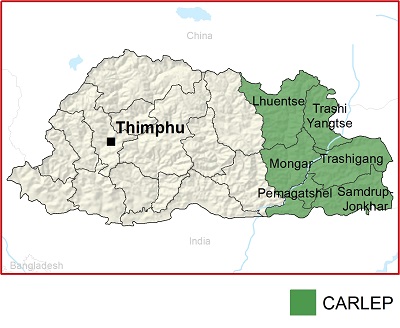Commercial Agriculture and Resilient Livelihoods Enhancement Programme (CARLEP)
IFAD Asset Request Portlet
Asset Publisher
Commercial Agriculture and Resilient Livelihoods Enhancement Programme
The goal of the Commercial Agriculture and Resilient Livelihoods Enhancement Programme (CARLEP) is to sustainably increase smallholder farmers' incomes and reduce poverty. The objective is to ensure increased returns for smallholder farmers through climate resilient production of crops and livestock products. This will be achieved by facilitating the transformation from a subsistence-based rural agricultural economy into a sustainable value chain and market driven sector.
CARLEP builds on prior and on-going IFAD-funded interventions focused on increased agricultural production. This intervention will place attention on marketing and climate resilient farming practices. It aims to:
- Sustainably increase agricultural production
- Enhance agricultural production systems to absorb climate-induced shocks
- Institute value chain and marketing systems for vegetable and dairy products
The programme will be implemented initially in six southern and eastern districts. There will be differentiation between the dairy and vegetable value chain areas with some overlap. Scaling-up interventions after the mid-term review will allow an additional four districts in the central and southwest to participate.
The programme supports the Royal Government of Bhutan's 11th five-year plan focusing on climate-resilient agriculture production, value-chain enhancement and policy dialogue to boost agriculture commercialization.
Poverty in Bhutan is overwhelmingly a rural phenomenon as nearly 95% of poor people live in rural areas. The programme will benefit 28,975 smallholder households, of which 7,115 households will directly benefit from vegetable and dairy value chains.
Source: IFAD

President's reports
Project design reports
Supervision and implementation support documents
Supervision and implementation support documents
Environmental and social impact assessment
Final environmental and social management framework
Interim (mid-term) review report
Interim (mid-term) review report
Resettlement action framework
PCR digest
Special study
Project list
Audit and Financial Statements
Audit and Financial Statements
Project completion report
Co-financiers
Related
Related
How Bhutan is showing the way in building crop biodiversity
For countries like Bhutan – nestled in the high Himalayas, historically isolated and topographically challenging – ensuring food security is vital.
One small step: Empowering micro-, small and medium businesses across South Asia
It is something of a paradox that, while there is broad agreement that micro-, small and medium enterprises (MSMEs) are an integral part of the economy in developing countries, they remain underserved.